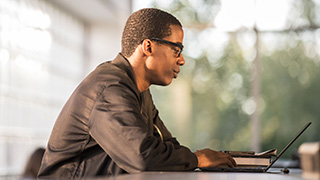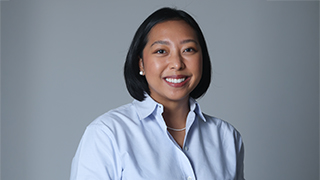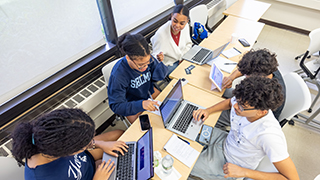The Transition to Remote Learning: Student Perspectives - Seton Hall University
Wednesday, May 6, 2020

Devon Mancini, a first-year student within the M.A. in Museum Professions program, shares how instructors in her program are making the best of the situation. "This change has been stressful for students, faculty members, and administrators, but everyone is working hard to ensure we are handling the transition well under the circumstances," Mancini said. With the help of learning technology tools, faculty have been able to catch students up to speed on the necessary features, helpful tools for virtual class meetings and functions. Mancini also noted, "I am thankful that some professors have extended deadlines to give us time to adjust." Since the transition happened towards the second half of the spring semester, many students only have a few assignments left to focus on. "Most of my assignments have stayed the same, except for minor changes to adapt to the virtual landscape," Mancini said.
A unique change within the Museum Professions program was the adaptation of their pop-up exhibition, "We moved the exhibition to a website format and are working to translate the changes of our content. We also changed the theme of the exhibit to generate a resource for the Seton Hall Community and beyond during this unique time," Mancini shared. The exhibition was originally going to examine the difference between poverty and privilege, but in light of the recent events, it changed to "Stress in the Time of COVID-19." Mancini noted though the change has been difficult, she and her cohort handled the transition smoothly and are devoted to helping anyone they can with the exhibit which will go live the beginning of May.
The transition to remote learning also caused challenges for students wrapping up their last semester. Nikki Malupa, a second-year graduate student in the M.A. Public Relations program, shares how remote learning affected her Master's Project. "It was hard to imagine how we would we transition well to a virtual setting since a lot of the course involves in-person meetings and workshops, but the advisers were quick to update us as the situation developed," Malupa said. Despite the cancellation of in-person instruction, faculty on the Master's Project committee remained committed to supporting students and offering flexibility regarding the coursework structure. "I appreciate that they acknowledge the craziness around us and have worked hard to keep us grounded as we finish our projects," she shared.
Both Mancini and Malupa agree that through this uncommon learning space, faculty support has been unwavering. The immediate and possibly long-term changes to student and instructor interactions will affect how education will function in the future. "Some benefits of in-class learning cannot be accessed through remote learning, though we are doing our best to create that same environment," Mancini shared. With the spring semester ending soon, students continue to take everything in stride and have a positive outlook on the following semesters to come.
The College currently offers graduate-level programs in Museum Professions and Communication, including the opportunity to pursue a unique area of study, including options in Public Relations, Digital Communication/Communication Technologies, and Communication in Organizations. In addition, four dual-degree options, including three accelerated master's/B.A. programs and a dual M.A. degree with the School of Diplomacy and International Relations are offered.
For more information about Graduate Studies within the College of Communication and the Arts, please contact Dr. Ryan Hudes.
Categories: Arts and Culture, Education






